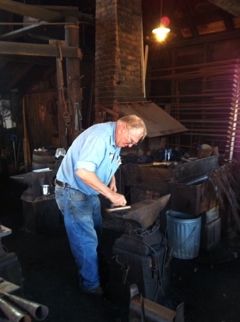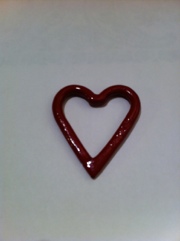It would be easy for me to ignore the issue. Should employers affiliated with religious institutions cover the birth control pill for females under their health care coverage? I am tempted to say that I don’t care. My children are grown. I am a grandmother. Even if I hadn’t had a hysterectomy nearly 10 years ago, it’s a safe bet that I’d be through menopause by now, anyway. My childbearing days are over.
So why, at this point, should I bother weighing in? It all goes back to an incident that just seemed wrong. Uncomfortable. Unworthy. Undignified. A time in my life when, in my late 30s, I was forced to explain something that, on a very personal level, I should never have had to explain to anyone, save my doctor.
I worked for a Catholic university. It was, by far, the best professional experience of my adult life. I was given as much as I gave. And there aren’t many employers you can say that about. Except for one experience.
I had been told by several doctors that I would eventually need to have a hysterectomy. I was living with symptoms that went beyond unpleasant. Yet I just wasn’t ready. I dreaded major surgery and I had often read that hysterectomies were one of the most unnecessary procedures performed. My doctor at the time was understanding. She suggested I go on, and stay on, the birth control pill. It would curb the worst of the symptoms and give me more time to reconcile myself to the inevitable. I agreed.
My employer, unfortunately, did not.
When I went to pick up the prescription, I was told the University’s health insurance did not cover birth control. But it wasn’t prescribed for birth control, I explained. (The same condition, doctors had told my husband and me, made it dangerous to add to our family of three children, and we had long before opted for a permanent birth control measure.) The pharmacist suggested I talk to the University’s Human Resources department.
I didn’t want to make the call. But we honestly couldn’t afford the medication unless it was covered. I had to try to make it affordable. I called Human Resources over the lunch hour, while my officemates were out, but the woman I needed to talk to was also at lunch. I tried again in the afternoon, when the office was quiet, but she was away from her desk. I had no choice but to leave a message. Of course she called when, not only were others present, one of them was my boss. I had to excuse myself, asking if I could borrow her private office. She agreed, with a curious, concerned frown.
As soon as I said I’d tried to fill a prescription for the pill, the woman from Human Resources interrupted with a calm, condescending voice. Mimi, she said, you work for a Catholic institution. The Church does not condone birth control.
I felt the heat rise up my neck. I was really going to have to explain, to a total stranger, my very personal, very intimate problem, and wait passively while others decided if it was morally acceptable to get help for it. It didn’t matter what my doctor recommended. It didn’t matter that it was a treatment I had decided was proper. It didn’t matter that I was 39 years old, living by my own moral code and raising children to be productive members of society. I was a supplicant. I had to ask permission. And suddenly I felt like a first-grader, raising my hand to be excused to use the restroom. Was it a number 1 problem? Or was it a number 2?
I felt my eyes fill with tears as I set my jaw and launched into a detailed (and graphic) explanation of why I needed the medication. But even then, it wasn’t enough. Call your doctor, she told me. The doctor could submit, in writing, a verification that the pill was being used as a medical therapy and not for birth control. I wasn’t to be believed. I had to offer this higher authority an equally high authority.
When I talked to the doctor, she apologized. She knew of the University’s requirement, but forgot I worked there. She would submit the paperwork to the insurance company. I do it all the time, she told me. Even for women who really are using it to prevent pregnancy, she said, explaining that she did so because most of her patients couldn’t afford the full price.
But her words didn’t take away the sting. I was a grown woman. I shouldn’t have had to explain why my doctor and I had settled on this treatment. I shouldn’t have had to wait for that treatment, while the insurance company decided if that explanation met a moral criteria set up by people I did not know and who didn’t know me.
I remember hanging up, wondering why we had to play such games. At what point did the Church’s right of freedom of religion circumvent my freedom of religion? I didn’t then, nor do I now, think birth control is wrong. Moreover, when had this ceased to be a matter between my doctor and me? When did the Church’s moral high ground become more important than my privacy? When did it override what was best for my health?
I’m sure some people will wonder why, if I felt so strongly, I opted to work for a Catholic institution. That’s a valid question. My only response is that then, as now, finding work wasn’t that easy. And there were many, many good reasons to stay in the University’s employ with only a few reasons to fault it as an employer. At heart, I suppose, this is the only fault that still hurts on a very personal level.
In the end, the University’s insurance covered the prescription. The medication was put into my reach, and it did help. And it only cost me my privacy, my dignity and my copay.


